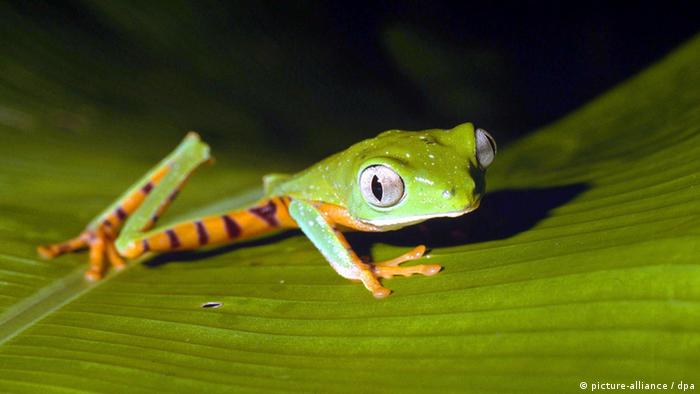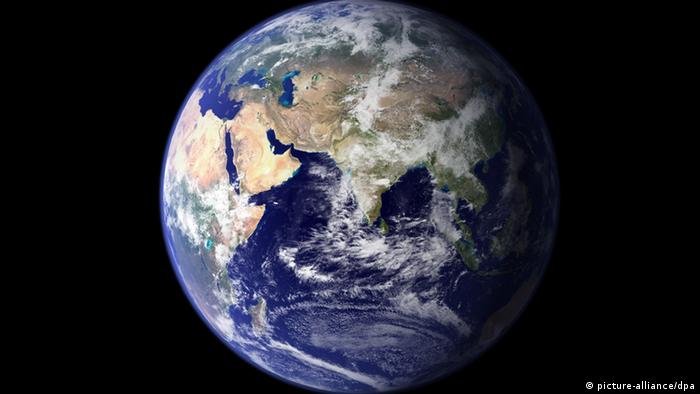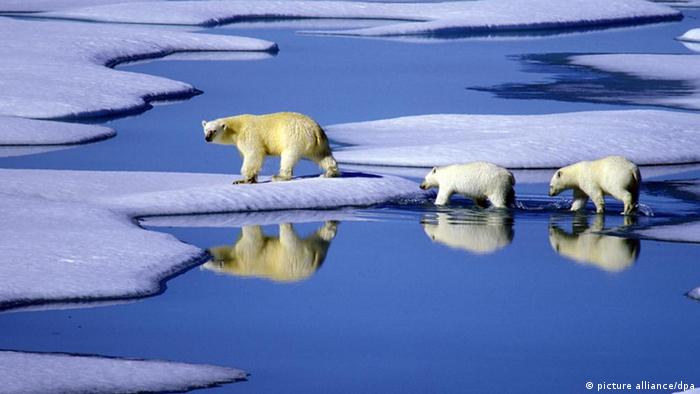After publishing a series of apocalyptic predictions for the future of life on Earth, scientists say there is still time to prevent a climate catastrophe - if people aren't lured into a false sense of security.
Current global consumption levels could result in a large-scale ecosystem collapse, according to a study conducted by a team of 22 international scientists. The researchers compared the biological impacts of major shifts in the state of the planet and published their results this week in the journal Nature.
The researchers determined that population growth, destruction of the environment and climate change threaten to irreversibly alter the global ecosystem. They pointed out that the world population is set to rise from 7 billion to around 9.3 billion by mid-century. Their findings also showed that global warming will outstrip the UN target of 2 degrees Celsius.
Nearing the "transition point"
They described a "transition point" in which the biosphere goes into a swift transition phase, characterized especially by species extinctions with potentially catastrophic effects on human populations.

Use of natural resources could help push the Earth to a tipping point
"The situation is like a glass on the surface of a table. You can keep pushing that glass and in the beginning nothing happens. But, when it reaches the edge, no matter how small push... you will drive the glass into a very different state. The glass will be shattered on the floor. We want to avoid that," said Jordi Bascompte, a biologist who contributed to the study.
The climate stays within a particular state for an extremely long time and then goes through a short period of transition, added to Mikael Fortelius, a professor of evolutionary paleontology at the University of Helsinki who focuses on extinction processes and evolution.
"Something pushes it far enough from that state so that it doesn't return but rather ends up in another mode," Fortelius told DW.
Strong, unpredictable forces at work
For the study, Fortelius helped determine how the biosphere reacted in the distant past to rapid changes. The Earth, he said, has been in an ice age for the past 2.5 million years.

Climate transition points are characterized by species loss
"You have cold states oscillating with warmer ones," he said. "But human influence is driving this beyond typical limits to an unknown state we cannot predict. What we can predict is that the shift is likely because the forces at work here are so strong."
He added that unsustainable patterns of population growth and overconsumption of resources were among the forces at work.
Not too late
The study has been widely seen as an apocalyptic prediction of doom. But Bascompte and Fortelius said they believe there is still time to take action.
The study's release - just days ahead of the opening of the Rio+20 conference on sustainability on June 20 - was timed as a means of pushing decision-makers into action, Bascompte and Fortelius said in separate interviews.

There is time to take action in Rio, experts agreed
"There's hope. Population size could be brought down quickly if people wanted that. If contraception was widely available for free for people who want it. And if people understood consequences of overpopulation," Fortelius said. "A more difficult question is how we reduce per capita [use of] resources."
Bascompte echoed his colleague's optimism.
"A lot of people think that's a very negative message. On the contrary - it's very positive. I'm excited," he said. "For the first time we understand change in these systems... We're still in a time when we can reverse the situation. But we have to act now. We cannot procrastinate any longer."
Author: Saroja Coelho
Editor: Sean Sinico DW DE
Editor: Sean Sinico DW DE


No comments:
Post a Comment